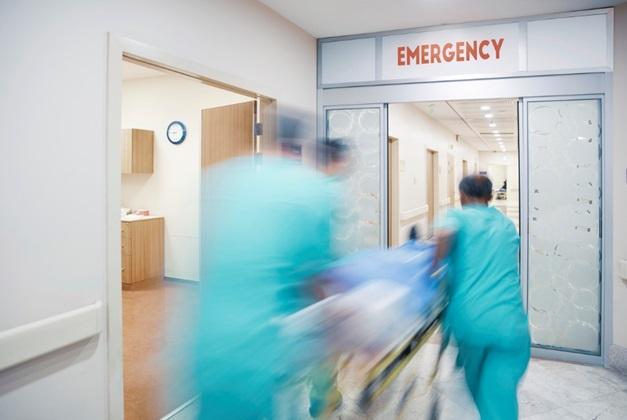
Nursing is not an uncommon career path in the United States. Millions of nurses across the country work hard every day to keep the country safe and healthy. While the job is a critically important one, it is not always the easiest to do. Nursing can be quite challenging when it comes to managing trauma and critical incidents, as well as the stress that comes with them. The good news is that not only is the job worth the potential difficulties along the way, but it comes with an educational basis of strong response abilities.
This article will look at nursing education programs, how they train nurses to respond to patient trauma and critical events, and the personal trauma that sometimes stems from doing so.
Instruction on trauma and critical events
One of the most important ways nurses can ensure they make the best decisions possible, even under the most difficult circumstances, is through instruction on trauma and critical events. Nurses must receive book-based as well as hands-on knowledge to ensure they can operate under high-stress situations and adequately respond to emergency scenarios. Let’s take a closer look at how higher education is preparing aspiring nurses for acute care situations.
Academic/theoretical instruction
Nursing instruction focuses on a few different methods, ranging from purely theoretical to solely practical. While it might seem as if the latter is far more important in nursing, the truth is that both types of instruction have their place in the field. Purely academic instruction is an important supplement to hands-on work and gives students a solid foundation on which to build more practical knowledge. This is one area where nursing education programs prepare nurses for critical incidents and patient trauma.
Nursing students learn about the physiology and anatomy relevant to trauma, shock management, pain assessment, wound care, and even pharmacology background information about emergency medications. Perhaps more importantly, today’s nursing programs teach aspiring professionals about trauma care, emergency procedures, and critical incident management. This allows them to make confident decisions under sudden and unpredictable circumstances if necessary, protecting patients and enhancing the quality of care they receive.
Simulation instruction
In addition to the academic instruction described above, nursing students also experience simulation instruction. As the name implies, simulation-based education refers to simulated scenarios that allow patients to learn and practice skills that might otherwise be difficult to teach. It is one thing to give someone a theoretical list of what they should do in an emergency and quite another to execute those steps during a critical incident. It is not enough to offer simple academic instruction in this area, which is where simulations come in.
Simulations mimic real-life trauma and critical incidents to expose nurses to the potential chaos and stress that sudden medical emergencies bring without a patient’s life hanging in the balance. These exercises are a safe space for trauma-based instruction, in other words, and allow students to make decisions, apply clinical judgment, and collaborate with interdisciplinary teams without risking patient safety.
Lab training
Another area where nursing education programs provide students with the knowledge and training needed to effectively manage trauma and critical incidents is laboratory work. Sometimes known as “skills laboratories,” these classes allow students to practice hands-on techniques for emergency situations, such as wound dressing, CPR, airway management, and medication administration. This kind of instruction differs from simulation instruction in that students are not put under stress in order to mimic emergency scenarios the way they often are during simulation training. Instead, students have time to truly master first-aid techniques so that they can do them without hesitation in high-stress situations.
Skills labs offer students a place to hone their technical skills before they apply them in clinical settings such as medical emergencies.
Clinical rotations
Another area where nursing education tackles trauma and critical incidents is clinical rotations. This instruction takes students to various healthcare settings to observe how professionals manage trauma. More advanced students might even be allowed to intervene and practice their skills and judgment under the watchful eye of practicing medical professionals. Emergency rooms, trauma centers, intensive care units, and even operating rooms are common locations for clinical rotations, exposing students to real-world trauma up close and in real time.
We mentioned above that sometimes theoretical education just isn’t enough. Simulation training can be incredibly beneficial, but it’s still not the same as experiencing medical emergencies in person. Clinical rotations are the extra step needed to complete nursing education and training and prepare students for real-world experiences.
Critical thinking and decision-making
Nursing education programs emphasize the skills that best enable nurses to thrive in the workforce. Two of the most important skills typically focused on are critical thinking and decision-making. Real-life trauma incidents and medical emergencies require nurses to make split-second decisions that can be the difference between life and death. That means they must have a solid foundation in both skills before they graduate, enabling them to react well and responsibly in emergencies.
Critical thinking and decision-making skills are crucial to accurate and beneficial responses in high-stress situations. Students typically learn about assessing patient conditions and intervention priorities as well as various strategies they can use to keep their patients as safe as possible.
Team collaboration
We’ve talked a lot about how nurses must make quick decisions to save their patients, but they do not work alone. Many patients have a care team comprised of professionals in multidisciplinary teams such as respiratory therapists, physicians, and even mental healthcare providers. Nurses must be able to interact with these professionals quickly and efficiently when trauma occurs to ensure that they have accurate and up-to-date information about their patient’s medical needs.
To ensure students have this ability, nursing education programs teach communication, collaboration, and teamwork skills to ensure they can work seamlessly with all members of a medical care team.
Ethical needs
Nurses don’t just make quick decisions to save their patients based on physical needs alone. They must also keep ethical considerations in mind. Nursing training programs educate students about ethical principles such as patient autonomy, informed consent, and end-of-life care decisions rooted in critical situations. They must also learn about putting their own feelings and beliefs aside and ensuring that their patients receive the care they expect and consent to. This can be a difficult scenario to handle, which is why nursing education emphasizes ethical considerations in all kinds of scenarios.
Ideally, nurses will be able to make the most ethical and effective decisions possible in high-stress situations that adhere to the patient’s expectations and desires.
Continuing Education
The medical field isn’t a stable, unyielding institution. It is an ever-changing industry with innovation around every corner and best practices shifting in real time. Nursing students are never truly done with their education. Instead, they must commit to lifelong learning and ensure they understand the latest technologies and best practice strategies used to mitigate trauma and critical care.
Nursing education programs teach their students the value of ongoing instruction to make sure that they are diligent about learning new things in the future and refining their skills to fit with new technologies and techniques as they arise. All of this, in turn, leads to better decision-making in traumatic and critical situations.
Stress management and resilience
Until now, we’ve focused primarily on how nurses react to their patient’s trauma and medical emergencies. We haven’t focused much on how nurses must cope with the stress and trauma of caring for patients during these incidents, especially if the result is negative, such as patient death. Nurses are not stoic beings – they are humans just like everyone else and are just as prone to stress and anxiety. That’s why nursing education focuses on stress management techniques and resilience.
From courses on managing stress to those emphasizing coping with the emotional demands of the field and promoting their own well-being, nurses should learn essential skills in this area during their education. The best academic programs, particularly BSN to MSN programs, focus quite a bit on this area, better enabling students to craft a long and healthy career in the nursing industry. Wilkes University is a great example of this. Its well-designed program provides students with the detailed instruction and hands-on preparation they need to thrive in almost any work-related situation.
Addressing trauma before it turns into fatigue or burnout
Unaddressed trauma and stress can develop into serious issues like compassion fatigue, burnout, and secondary traumatic stress. Taking steps to address these problems before they progress is critical to building a healthy and stable career. Here are some of the things you can do to keep trauma in check and build resiliency.
Take care of your basics
First, pay attention to your basic health needs. This includes your diet, exercise level, and sleep. As a nurse, you will see firsthand (if you haven’t already) how important a good diet is to overall health. Build your meal plans carefully to prioritize energy without the need for sugary “supplements” like energy drinks. While nursing is a lot of hard physical work, make sure that you are meeting the basic exercise needs for your weight and level of health, too. Finally, get as much sleep as possible. It can be difficult, we know, but getting enough sleep is one of the most important things you can do for your physical and mental health.
Take some “you time”
If you’re already working as a nurse, you might think this tip is absurd. Nurses work incredibly hard and don’t have time for many breaks, so taking long chunks of time away from nursing simply isn’t possible most of the time. The good news is that you don’t have to take a lot of time to help reduce the effect of trauma and reduce your risk for burnout or compassion fatigue.
If you have even just a minute or two, maybe between rounds of checking in on your patients, take a moment and just breathe. Remember to live in the moment and acknowledge your feelings. If you are having a difficult time after a patient’s death or after seeing a particularly challenging emergency situation, accept that. Don’t try to hide it or put yourself down for it. Acknowledging how you feel and doing your best to work around it is sometimes the best way to handle trauma at work.
See a mental health professional
We can’t end this discussion without highlighting the most effective option for handling trauma and stress. Why not see a mental health professional? Whether you see a psychiatrist, a psychologist, a counselor or therapist, or someone else entirely, talking with a professional can sometimes be exactly what you need to sort through your feelings.
Some people hesitate to see mental health professionals because they’re scared of being told they need medication or have to do something complicated to recover, but in reality, most professionals will look at medication alternatives before they prescribe anything. And speaking with someone can be an excellent way to take some stress off and work through your trauma in a healthy manner. Once you talk with a professional and are given the tools you need to feel better, the good news is that you will always have those tools moving forward. This helps ensure that you can approach trauma in a healthy way in the future, too.
Are you interested in learning more about how nursing education prepares aspiring professionals for the problematic aspects of their future careers? Keep the information in this article in mind and assess the programs you’re interested in joining to make sure they offer instruction on all of them. You’ll be making a positive difference in the lives of your patients in no time!




